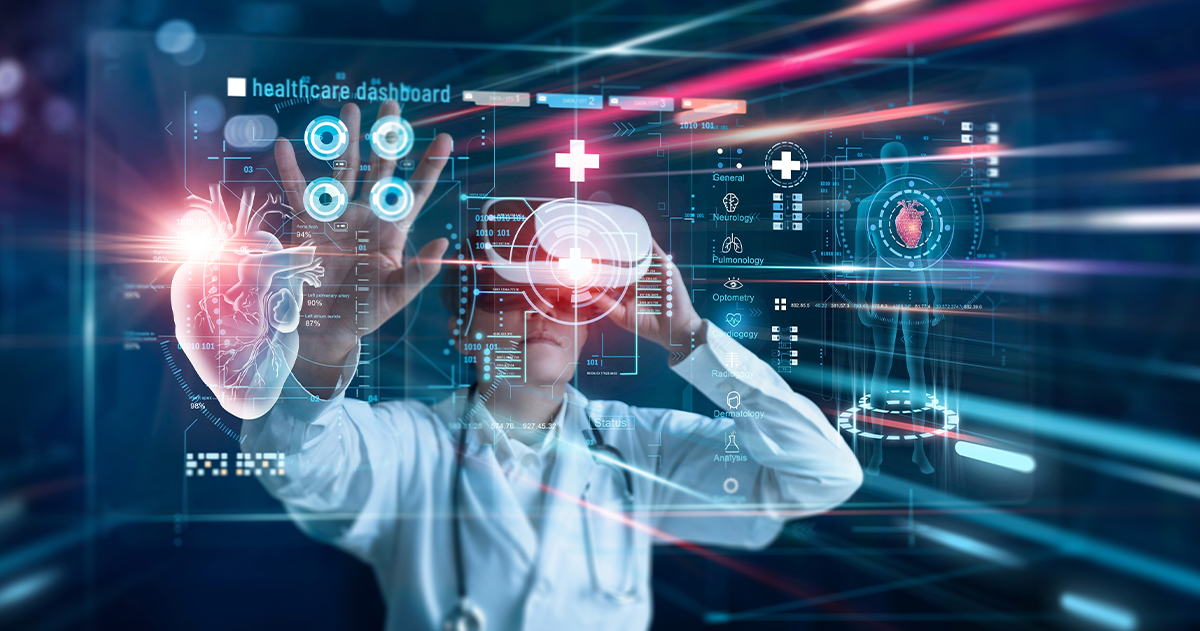
1. Wearable Devices:
Wearable devices, such as fitness trackers, smartwatches, and medical-grade wearables, are revolutionizing healthcare by allowing individuals to monitor their health and wellness in real-time. These devices can track vital signs such as heart rate, blood pressure, oxygen saturation, and activity levels, providing valuable insights into overall health and detecting early warning signs of potential health issues. Wearable technology also enables remote patient monitoring, allowing healthcare providers to monitor patients' health outside of traditional clinical settings and intervene proactively when necessary.
2. Telemedicine and Remote Monitoring:
Telemedicine and remote monitoring technologies leverage telecommunications and digital health platforms to deliver healthcare services remotely, allowing patients to access medical care from the comfort of their homes. Telemedicine appointments enable patients to consult with healthcare providers via video conferencing, telephone, or secure messaging, eliminating the need for in-person visits and reducing barriers to care. Remote monitoring technologies, such as home-based monitoring devices and mobile health apps, enable continuous monitoring of patients' health status and adherence to treatment plans, facilitating early intervention and personalized care.
3. Artificial Intelligence (AI) and Machine Learning:
Artificial intelligence and machine learning technologies are revolutionizing healthcare by enabling data-driven decision-making, predictive analytics, and personalized treatment approaches. AI algorithms can analyze vast amounts of medical data, including electronic health records, medical imaging studies, and genomic data, to identify patterns, predict outcomes, and optimize treatment strategies. Machine learning algorithms can also be used to develop predictive models for disease diagnosis, risk stratification, and treatment response, enabling more precise and effective patient care.
4. Virtual Reality (VR) and Augmented Reality (AR):
Virtual reality and augmented reality technologies are transforming healthcare by providing immersive and interactive experiences for patient care, medical education, and therapeutic interventions. Virtual reality therapy is being used to treat a wide range of medical conditions, including chronic pain, post-traumatic stress disorder (PTSD), anxiety disorders, and phobias, by immersing patients in virtual environments that promote relaxation, distraction, and therapeutic exercises. Augmented reality applications are also being used insurgical planning, medical training, and patient education, enabling healthcare providers to visualize complex medical data and enhance decision-making processes.
5. Remote Patient Monitoring:
Remote patient monitoring technologies enable healthcare providers to monitor patients' health status and vital signs remotely, allowing for early detection of health issues and timely intervention. These technologies include wearable sensors, home-based monitoring devices, mobile health apps, and remote monitoring platforms, which collect and transmit data on patients' vital signs, medication adherence, and symptoms in real-time. Remote patient monitoring has the potential to improve patient outcomes, reduce hospital readmissions, and lower healthcare costs by enabling proactive and personalized care delivery.
6. Blockchain Technology:
Blockchain technology is revolutionizing healthcare by enabling secure and transparent data exchange, interoperability, and patient-centric care delivery. Blockchain-based systems can securely store and share electronic health records, medical imaging studies, and other healthcare data, ensuring data integrity, privacy, and security. Blockchain technology also enables patients to have greater control over their health data, allowing them to securely share their medical records with healthcare providers, researchers, and other authorized parties while maintaining ownership and consent.
7. Personalized Medicine and Genomics:
Advancements in genomics and personalized medicine are revolutionizing healthcare by enabling tailored treatment approaches based on individual genetic makeup, lifestyle factors, and disease risk profiles. Genomic sequencing technologies allow for the identification of genetic variants associated with disease susceptibility, treatment response, and drug metabolism, enabling precision medicine approaches that optimize treatment efficacy and minimize adverse effects. Personalized medicine approaches also include pharmacogenomics, which uses genetic information to guide medication selection and dosing, and precision oncology, which targets cancer treatments based on tumor-specific genetic mutations.
In conclusion, tech innovations in healthcare are transforming the way healthcare is delivered, experienced, and personalized, offering unprecedented opportunities to improve patient care, enhance treatment outcomes, and empower individuals to take control of their health and wellness. From wearable devices that track vital signs to virtual reality therapy for pain management, these cutting-edge technologies are shaping the future of healthcare and driving innovation across the industry.